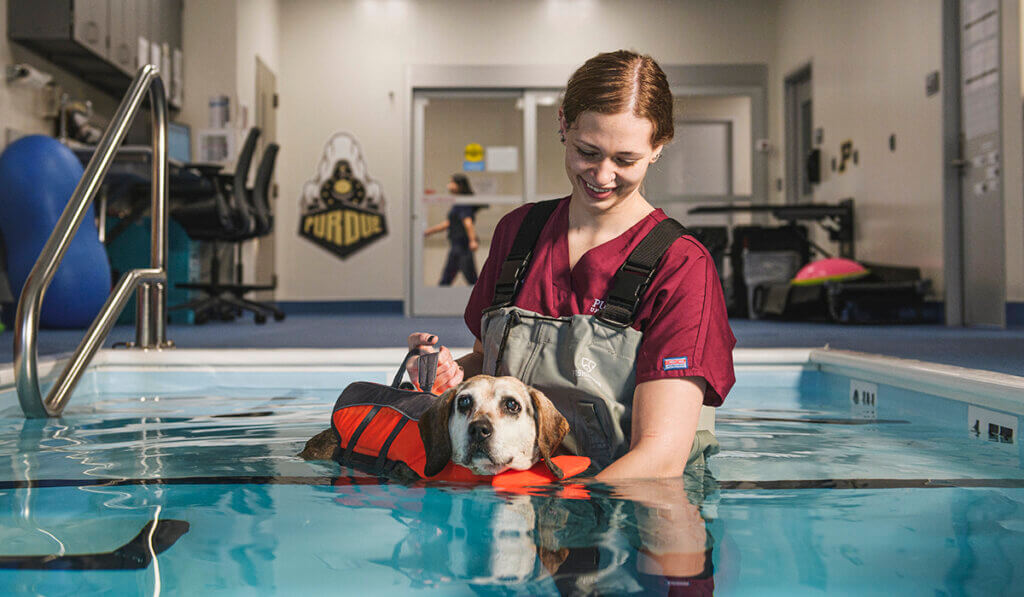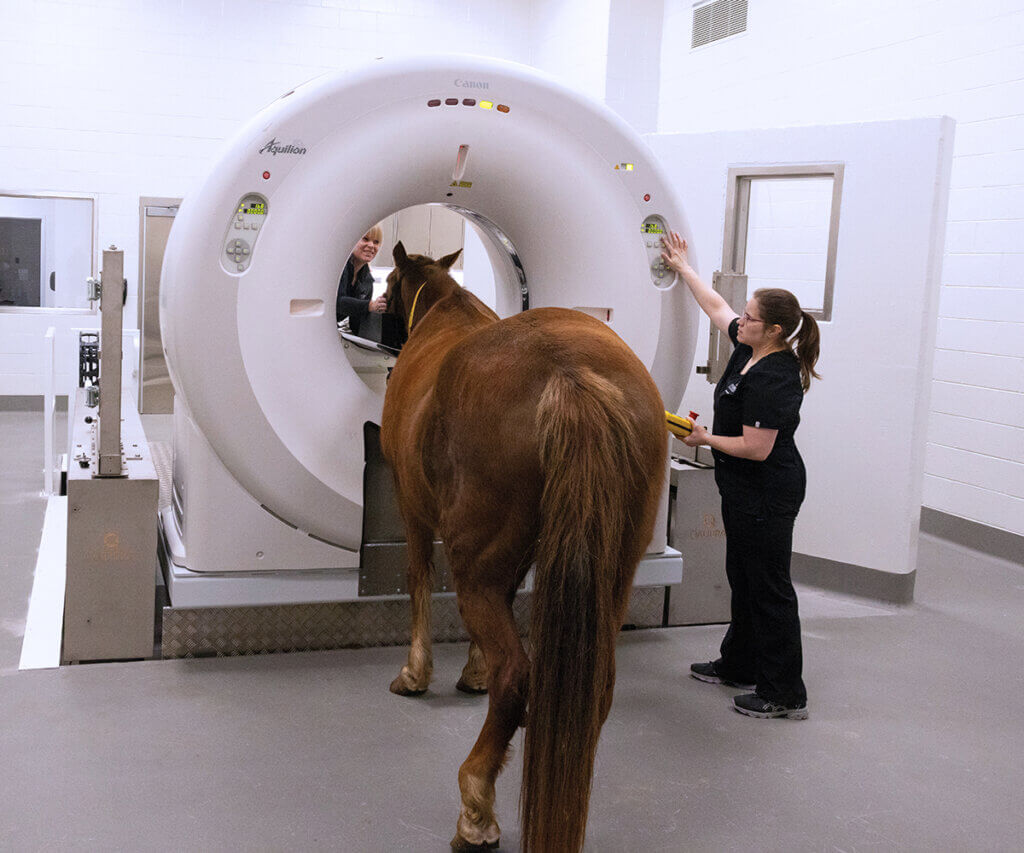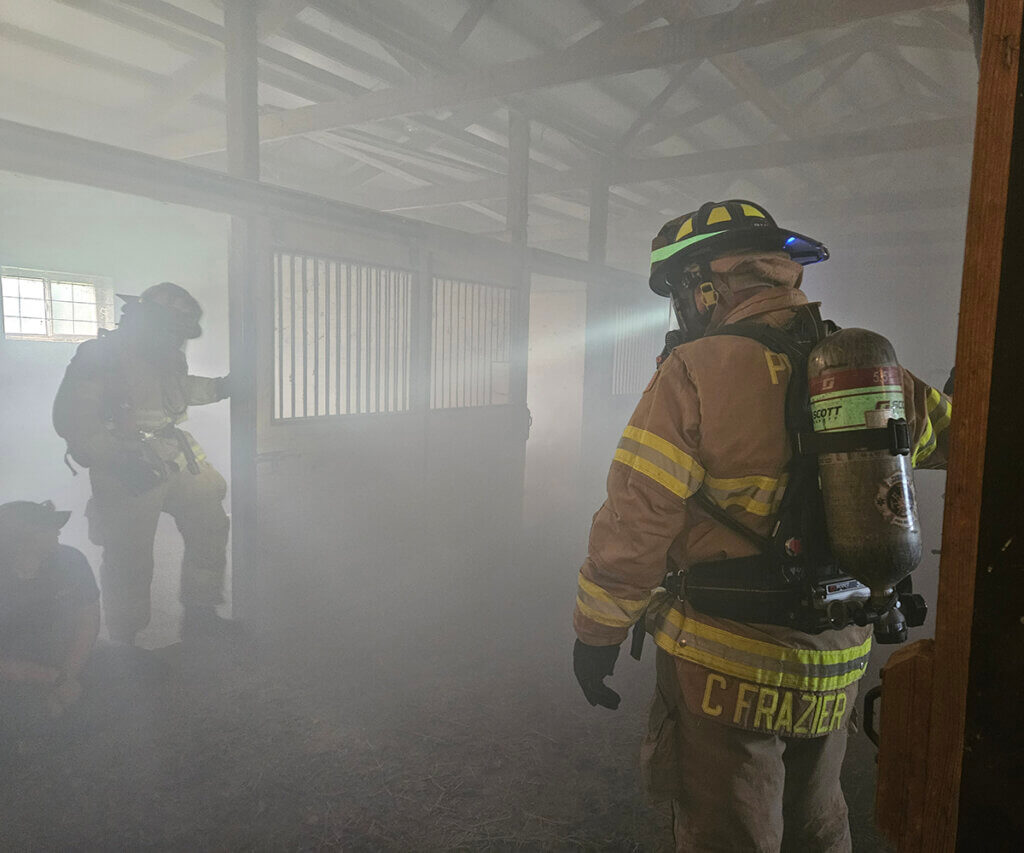
The Purdue University Veterinary Hospital has completed its first full year in its expanded facilities and the benefits are significant and far-reaching. Measurable accomplishments have been achieved in the past year as a result of the capabilities of the enhanced hospital facilities coupled with behind-the-scenes efforts, and the dedicated, expert clinicians and staff who work there. Empowered by this team of outstanding personnel, the Veterinary Hospital is contributing to a brighter future for animals and people through advanced, high-quality, compassionate patient care; comprehensive, real-world, hands-on veterinary education; and leading-edge medical discovery involving clinical trials.
Here’s a sampling of just some of the facts and figures that help tell the story of how, together, we are working to achieve global solutions to animal and human health challenges.

In just a year’s time, the Veterinary Hospital treated more than 20,000 patients. Those include 11,314 canine, 4,778 feline, 91 avian patients, and 91 other small animals such as rabbits and lizards. The Small Animal Primary Care Service continues to serve residents of Tippecanoe County and surrounding areas with 836 clients choosing Purdue as their pet’s primary care provider. The Small Animal Emergency Service treated an average of more than 200 cases per week, totaling 11,791 cases, with Saturday being the busiest day of the week. The top reasons why patients were brought to the Emergency Service included: vomiting/diarrhea, limping, and ingestion of a foreign non-food substance.
Patients of the Physical Rehabilitation Service worked hard toward their treatment goals with dogs averaging 9,360 minutes of exercise in the underwater treadmill in the past year, and ten dogs practicing their paddling skills in the therapy pool each month. The Veterinary Hospital Pharmacy filled 31,507 prescriptions and the Clinical Pathology Laboratory conducted nearly 49,800 diagnostic tests.
A total of 21 canine blood donors and seven feline blood donors made possible 123 life-saving blood transfusions. In the Equine and Farm Animal Hospitals, ten gallons of life-saving blood donations were made thanks to contributions from the hospital’s team of six equine, two bovine, and five caprine blood donors.
Patients treated by the Equine and Farm Animal Hospitals included 2,381 equine, 649 bovine, 280 caprine, 222 porcine, 77 ovine, and 57 other large animal species such as llamas and alpacas, as well as a Bengal tiger that was treated by the Ophthalmology Service. Known for its advanced imaging, the hospital’s diagnostic imaging capabilities include computed tomography, which is heavily relied on for both equine and farm animals thanks to its large gantry opening, moveable platform, and ability to scan animals of all sizes including a 600 pound pig – the hospital’s largest non-equine patient scanned with that technology. Specialty services include Equine and Bovine Theriogenology that provides the latest in reproductive medicine and surgery. Intensive care and observation for equine and farm animals is available 24/7. Additionally, the Bovine Field Service now is offering primary care to producers in Southern Indiana to address a critical shortage of veterinary medical care in that region.

In August, hospital personnel from the Equine and Farm Animal Hospitals as well as the Bovine Field Service, and the college’s Caesars Entertainment Equine Specialty Hospital in Shelbyville, participated in Technical Large Animal Emergency Rescue (TLAER) training. A total of 35 people attended the joint TLAER training exercise that also involved the Purdue University Fire Department and the Morgantown Fire Department. The Veterinary Hospital participants included veterinarians and veterinary nurses, residents, interns, and DVM students. Working together with fire department personnel, they learned techniques for keeping animals and themselves safe during emergency rescues, such as a horse caught in a burning barn, trapped in an overturned trailer, or caught by the leg in a broken wooden bridge deck. Click here to read the complete story.
The outstanding patient care provided by the Purdue University Veterinary Hospital is a testament to the dedicated efforts of the more than 300 Boilermakers that work in the hospital facilities. Those personnel include 83 veterinary nurses, 52 clinicians, 41 residents, 27 veterinary assistants, nine interns and another 60 in support staff, 31 team leaders, and seven who work in the pharmacy. Among the clinicians are more than 40 board-certified veterinarians, and 15 of the hospital’s veterinary nurses are certified veterinary technician specialists. Beyond providing exceptional patient care, clinicians and veterinary nurses serve as educators, with a total of 173 students completing their clinical education in the hospital.
This is just a glimpse of what it takes to persistently deliver expert, compassionate care while also educating the next generation of veterinary professionals, thereby advancing veterinary medicine one small step at a time.

